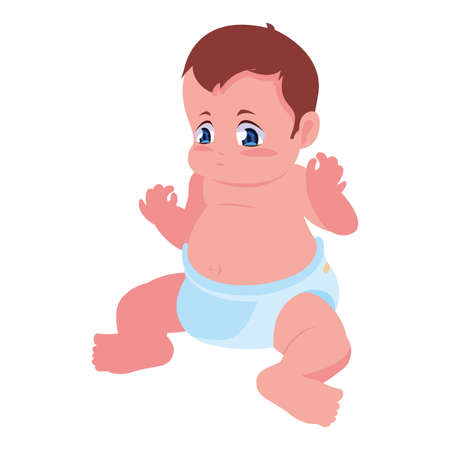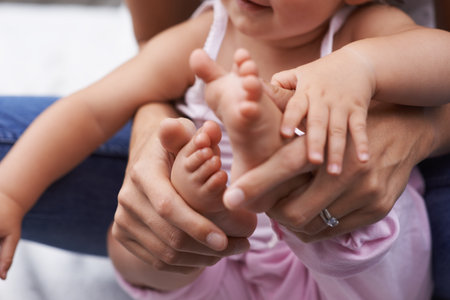Understanding Gross Motor Milestones in Early Childhood
Gross motor development refers to the progression of physical skills that involve the large muscles of the body, such as those used for sitting, crawling, standing, and walking. In early childhood, these milestones are essential indicators of a child’s overall physical development and well-being. Recognising typical patterns helps parents and carers spot any delays early, allowing timely intervention and support. According to NHS guidelines in the UK, children generally achieve certain gross motor milestones within specific age ranges. Here is an overview of key gross motor milestones commonly expected in young children:
| Age | Gross Motor Milestone |
|---|---|
| By 6 months | Rolling over, holding head steady when sitting with support |
| By 12 months | Pulling to stand, cruising along furniture, crawling on hands and knees |
| By 18 months | Walking independently, beginning to climb stairs with help |
| By 2 years | Kicking a ball, running with improved coordination |
| By 3 years | Jumping with both feet, riding a tricycle, going up stairs one foot at a time |
The National Health Service (NHS) emphasises that while there is natural variation among children, significant delays or difficulties achieving these milestones may suggest an underlying issue. Parents in the UK are encouraged to observe their child’s movement skills and consult their health visitor or GP if concerned about gross motor development.
Common Early Signs of Gross Motor Delays
Recognising early signs of gross motor delays is crucial for supporting your child’s healthy development. While some signs are quite noticeable, others can be subtler and may only become apparent when comparing your child’s progress with typical developmental milestones. Below, we outline both the obvious and more subtle indicators that parents in the UK might observe if their child is not meeting expected physical milestones.
Obvious Signs to Look Out For
| Milestone | Expected Age | Potential Delay Indicators |
|---|---|---|
| Sitting unaided | 6-8 months | Still floppy or unable to sit without support by 9 months |
| Crawling | 7-10 months | No attempt to crawl or move across the floor by 12 months |
| Standing with support | 8-10 months | Struggles to bear weight on legs by 12 months |
| Walking independently | 12-18 months | Not walking at all by 18 months, or frequent falls after this age |
Subtle Signs Parents Might Miss
- Poor head control beyond three months old
- Stiff or unusually floppy muscle tone (either very rigid or ‘like a rag doll’)
- Favouring one side of the body consistently during movement or play
- Lack of interest in active play, such as reaching for toys or rolling over
The Importance of Observing Movement Patterns
In many cases, children with gross motor delays may achieve some milestones but use unusual patterns, such as bottom shuffling instead of crawling or tiptoe walking. While these can sometimes be normal variations, persistent differences may warrant further assessment.
When to Seek Advice in the UK Context
If you have any concerns about your child’s physical development, it’s always best to have an open conversation with your health visitor or GP. Early identification and intervention can make a significant difference in supporting your child’s progress and overall wellbeing.

3. When to Seek Professional Advice
If you are concerned about your child’s gross motor development, it is important to know when to seek professional advice. In the UK, there are several healthcare professionals who can support you and your child, including your GP (General Practitioner), health visitor, and paediatric physiotherapist. Recognising the right time to consult these experts can make a significant difference in your child’s physical development.
Key Signs That Warrant Further Assessment
| Age | Potential Concern | Recommended Action |
|---|---|---|
| 6 months | Not rolling over or struggling to hold their head up | Speak to your health visitor |
| 12 months | Not sitting without support or unable to crawl/commando shuffle | Contact your GP or health visitor |
| 18 months | Not able to stand with support or walk independently | Arrange an appointment with your GP |
| 24+ months | Poor balance, frequent falls, or difficulty climbing stairs | Request referral to a paediatric physiotherapist via your GP |
Who Should You Contact?
- Your Health Visitor: Health visitors are often the first point of contact for parents of young children in the UK. They can provide reassurance, initial assessments, and signpost you to further resources if needed.
- Your GP: If you notice persistent delays or have ongoing concerns, your GP can perform a more detailed assessment and refer you to relevant specialists.
- Paediatric Physiotherapist: For complex cases or if specific gross motor issues are identified, a paediatric physiotherapist can offer targeted support and intervention plans.
How to Raise Concerns Effectively
When consulting a healthcare professional, bring along any notes or videos of your child’s movements, as well as a record of milestones achieved so far. This information helps professionals make informed decisions about next steps.
NHS and Community Support Services
The NHS provides comprehensive support for children with developmental delays. You may also find local community services beneficial—ask your health visitor about baby and toddler groups designed for physical development.
4. Practical Tips for Supporting Gross Motor Skills at Home
Supporting your child’s gross motor development doesn’t require fancy equipment or specialist knowledge—simple, daily activities and small lifestyle changes can make a meaningful difference. Here are some practical ideas tailored for British families to help encourage healthy physical growth:
Encouraging Active Play Indoors and Outdoors
Make the most of your home and local parks by giving your child regular opportunities to move, climb, and explore. In the UK, even a rainy day is an opportunity: wellies and waterproofs mean you can still head outdoors for a stomp in the puddles or a run around the garden.
Simple Activities to Try at Home
| Activity | Description | Why It Helps |
|---|---|---|
| Obstacle Courses | Use cushions, chairs, and blankets to create a safe course indoors. | Improves balance, coordination, and planning skills. |
| Dancing to Music | Put on favourite tunes and encourage freestyle dancing. | Builds rhythm, coordination, and body awareness. |
| Pretend Play (e.g. animal walks) | Crawl like a bear or hop like a bunny across the room. | Engages different muscle groups and builds strength. |
| Scooter or Tricycle Rides | Use pavements or quiet cul-de-sacs with supervision. | Develops leg strength and coordination. |
Lifestyle Adjustments for Healthy Movement
- Limit screen time: Encourage play over passive screen use, following NHS guidelines.
- Family walks: Make walking part of your daily routine—walking to school, the shops or just around the block all counts!
- Use local resources: Explore children’s centres, playgroups, or swimming pools—many councils offer free or low-cost sessions.
When to Seek Further Support
If you notice that your child consistently struggles with basic movements compared to their peers (such as running, jumping, or catching), it may be wise to consult your GP or health visitor. Early intervention can make a significant difference in helping your child reach their potential.
5. Resources and Support Available in the UK
For parents concerned about their child’s gross motor development, there are a wide range of resources and support services available across the UK. Accessing early help can make a meaningful difference in your child’s physical progress. Below is an overview of key local services, charities, and government-backed programmes that support children with motor delays and their families.
Local NHS Services
The National Health Service (NHS) provides assessment and intervention for children experiencing gross motor delays. Parents can speak to their GP or health visitor to request a referral to relevant specialists such as paediatric physiotherapists or occupational therapists. Early Years Health Teams are also active in many communities, offering tailored support for under-fives.
Key NHS Services
| Service | Description | How to Access |
|---|---|---|
| Health Visitor | Monitors developmental milestones and offers practical advice | Routine check-ups or by appointment via GP surgery |
| Paediatric Physiotherapy | Specialist assessment and therapy for movement difficulties | Referral through GP or health visitor |
| Child Development Centre (CDC) | Comprehensive multi-disciplinary assessment for children with complex needs | Referral from healthcare professional |
Charities and Parent Organisations
A number of UK charities offer guidance, information, and emotional support for families navigating gross motor delays:
- SCOPE: Provides expert advice on disability, mobility, equipment, and inclusive play.
- The Dyspraxia Foundation: Focuses on developmental coordination disorder (DCD), including gross motor skills.
- Cerebra: Supports children with brain-related conditions affecting movement.
- Contact: Offers support to families with disabled children, including information on entitlements and local groups.
Useful Charity Contacts
| Name | Website | Support Offered |
|---|---|---|
| SCOPE | scope.org.uk | Helpline, online resources, family events |
| The Dyspraxia Foundation | dyspraxiafoundation.org.uk | Advice lines, publications, local groups |
| Cerebra | cerebra.org.uk | Guides, sleep advice service, parent support helpline |
| Contact | contact.org.uk | Parent helpline, workshops, information leaflets |
Government Programmes & Funding Support
The UK government provides several schemes to help families manage additional needs related to motor delays:
- Education Health and Care Plans (EHCP): If your child’s needs are significant and long-term, an EHCP can provide extra educational and therapeutic support at nursery or school.
- Disability Living Allowance (DLA): You may be eligible for DLA if your child requires more care or supervision due to motor difficulties.
Navigating Local Support Networks
Your local councils Family Information Service can signpost you to nearby playgroups, inclusive activity sessions, and parent forums. Connecting with other families facing similar challenges can offer reassurance and practical advice as you advocate for your childs development.
If you have concerns about your childs gross motor milestones, don’t hesitate to reach out—early intervention is key. The UK has a robust network of professionals and parent communities ready to guide you every step of the way.


